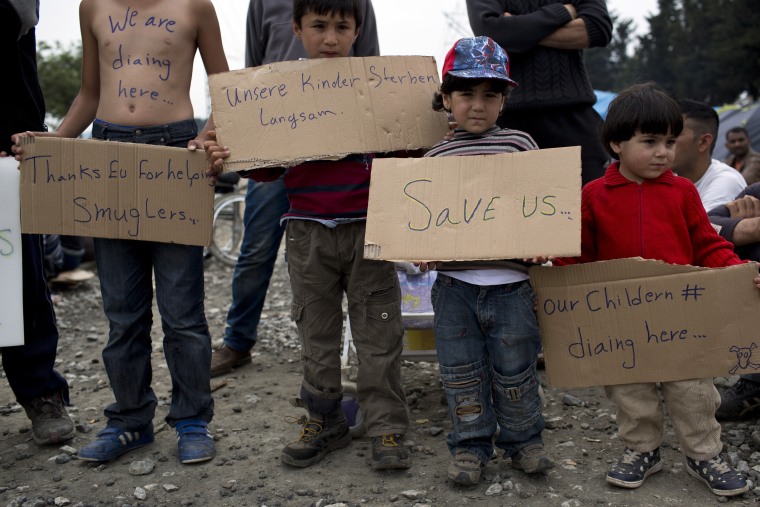GENEVA — People smugglers made over $5 billion from the wave of migration into southern Europe last year, a report by international crime-fighting agencies Interpol and Europol said on Tuesday.

Nine out of 10 migrants and refugees entering the European Union in 2015 relied on "facilitation services," mainly loose networks of criminals along the routes, and the proportion was likely to be even higher this year, the report said.
About 1 million migrants entered the EU in 2015. Most paid 3,000-6,000 euros ($3,400-$6,800), so the average turnover was likely between $5 billion and $6 billion, the report said.
To launder the money and integrate it into the legitimate economy, couriers carried large amounts of cash over borders, and smugglers ran their proceeds through car dealerships, grocery stores, restaurants or transport companies.
The main organizers came from the same countries as the migrants, but often had EU residence permits or passports.
Complete Coverage: Europe's Migrant Crisis
"The basic structure of migrant smuggling networks includes leaders who coordinate activities along a given route, organizers who manage activities locally through personal contacts, and opportunistic low-level facilitators who mostly assist organizers and may assist in recruitment activities," the report said.
Corrupt officials may let vehicles through border checks or release ships for bribes, as there was so much money in the trafficking trade. About 250 smuggling "hotspots," often at railway stations, airports or bus stations, had been identified along the routes — 170 inside the EU and 80 outside.
In 2015, the vast majority of migrants made risky boat trips in boats across the Mediterranean from Turkey or Libya, and then traveled on by road. Around 800,000 were still in Libya waiting to travel to the EU, the report said.